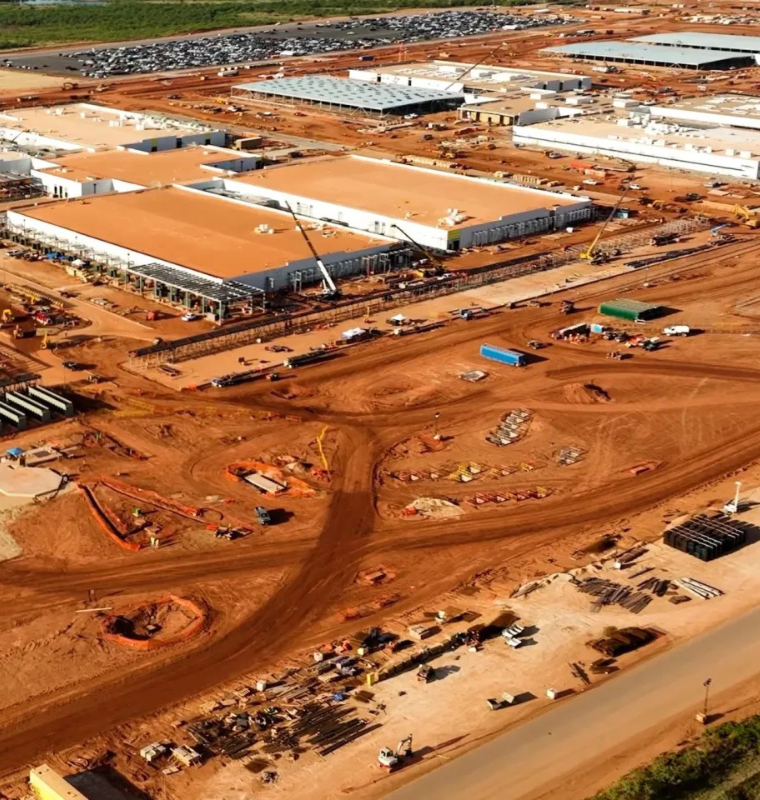Trump’s ‘Gaza Riviera’ Redevelopment Plan Sparks Global Outrage
Trump’s ‘Gaza Riviera’ Redevelopment Plan Sparks Global Outrage
By
David Goldfarb
Last updated:
September 2, 2025
First Published:
September 2, 2025

A large billboard of Trump in Ramat Gan, Israel, promoting a regional peace deal Tuesday.Jack Guez / AFP - Getty Images
A Controversial Vision for Post-War Gaza
A newly revealed 38-page U.S. proposal outlines a sweeping redevelopment plan for Gaza that could reshape the war-torn enclave into a high-tech tourism and manufacturing hub. Branded the Gaza Reconstitution, Economic Acceleration and Transformation Trust (GREAT Trust), the plan promises futuristic “AI-powered smart cities,” a Musk-branded manufacturing zone, and a glittering “Gaza Riviera.”
But at its core lies a deeply contentious element: the “voluntary relocation” of up to two million Palestinians in exchange for digital tokens, rent subsidies, and food stipends.
Details of the GREAT Trust
The proposal envisions a decade of U.S. trusteeship over Gaza before a “reformed and deradicalized” Palestinian administration would take control. Key features include:
- Six to eight AI-driven smart cities built on Gaza’s coastline.
- A manufacturing hub named after Elon Musk, specializing in electric vehicles and advanced tech.
- Leasing 30% of Gaza’s land (currently public property) to the Trust for up to 99 years, providing an estimated $300 billion in initial asset value.
- Promises of $324 billion in increased land and infrastructure value after reconstruction.
- Private and public “mega-projects” ranging from data centers to luxury resorts, with no direct U.S. federal funding.
Residents who agree to leave would receive a $5,000 relocation package, four years of rental subsidies, and one year of food support. The plan assumes 25% of Gazans would emigrate, with 75% of those never returning. Planners claim this approach would save $23,000 per relocated person compared to supporting them inside Gaza.
For those staying, digital property tokens would act as tradable rights to their land, redeemable for rebuilt homes.
International Reaction and Criticism
The plan has already drawn fierce backlash. Arab nations — including Saudi Arabia, Jordan, and the UAE — condemned earlier iterations of Trump’s “Gaza Riviera” idea, warning it undermines Palestinian sovereignty.
The United Nations estimates that 92% of Gaza’s housing stock has been destroyed since the war began in October 2023, after Hamas’ cross-border assault on Israel killed 1,200 people. Since then, over 60,000 Palestinians have reportedly been killed, making the idea of forced or incentivized relocation especially explosive.
Rights groups have labeled the proposal as veiled ethnic cleansing, while Hamas rejected it outright, declaring Gaza “not for sale” and insisting it remains an inseparable part of Palestine.
Economic Ambitions vs. Political Reality
The plan’s authors, some of whom are linked to the controversial Gaza Humanitarian Foundation (GHF), argue that redevelopment could turn Gaza into a $300+ billion global investment zone. They claim the GREAT Trust would create “self-generating revenue streams” through high-value land leasing, tourism, and advanced industries.
However, critics say the plan ignores international law, Palestinian self-determination, and the region’s volatile politics. Israel would retain “overarching security rights” throughout the trusteeship period, raising concerns that redevelopment could further entrench occupation rather than resolve it.
The Endgame
The stated “end state” envisions Gaza integrated into the Abraham Accords framework, expanding diplomatic and economic ties with Israel — but without mention of a recognized Palestinian state.
While Israeli Prime Minister Benjamin Netanyahu has praised Trump’s vision, global leaders remain skeptical. For Palestinians, the promise of seaside resorts and AI-driven cities rings hollow against the backdrop of displacement, destruction, and decades-long demands for sovereignty.
Popular articles
Subscribe to unlock premium content
Why Consumers Buy Limited-Edition Fashion and Beauty Products

How K-Beauty Changed the Global Skincare Industry and Consumer Expectations

How Streetwear Became a Billion-Dollar Industry From Niche to Mainstream

Why Consumers Buy Limited-Edition Fashion and Beauty Products

How K-Beauty Changed the Global Skincare Industry and Consumer Expectations

Why Consumers Buy Limited-Edition Fashion and Beauty Products









